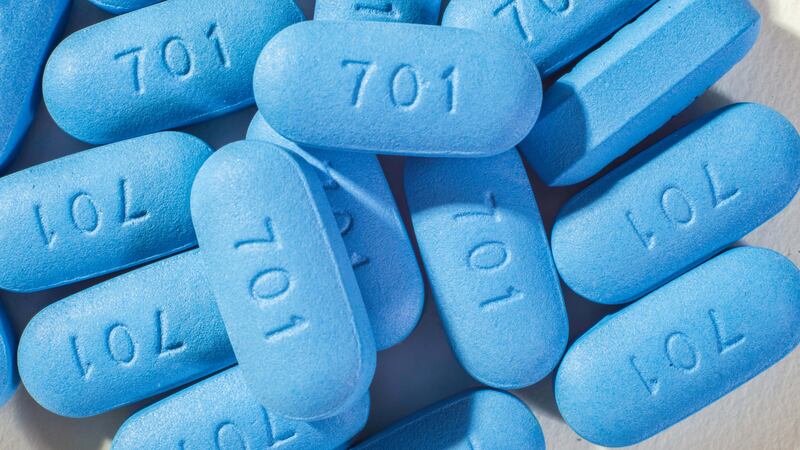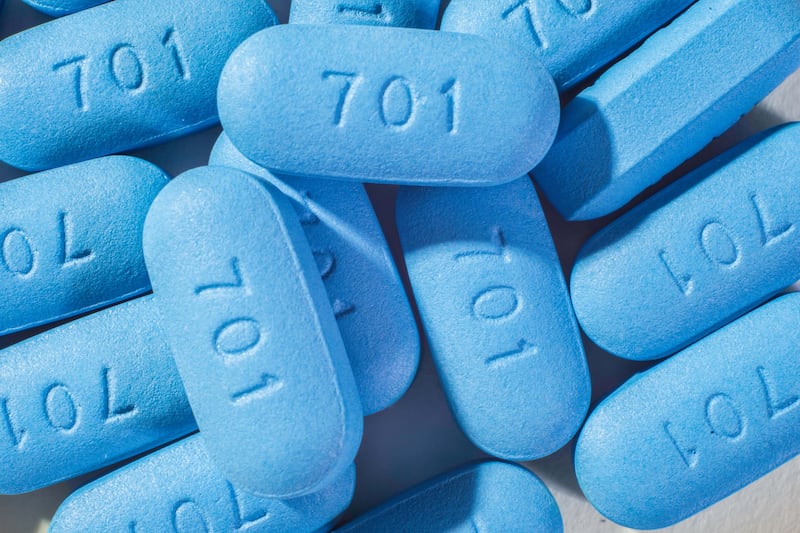Experts have called for PrEP – a drug designed to reduce the risk of HIV – to be more widely used, as a new study affirms it is “extremely effective”.
The research found taking HIV pre-exposure prophylaxis, known as PrEP, can reduce a person’s likelihood of developing HIV by 86%.
Data from more than 24,000 people aged 16 and over, who attended 157 sexual health services in England between 2017 and 2020, was examined for the findings.
Access to PrEP remains a concern, however. The study authors – led by the UK Health Security Agency (UKHSA) and Chelsea and Westminster Hospital NHS Foundation Trust –cautioned that “urgent work is required to ensure equity of access for all who might benefit”.
This comes after officials announced that following a successful pilot project, “opt-out” HIV testing in A&E departments would be ramped up, in a bid to find undiagnosed cases of the virus.
According to HIV and sexual health charity Terrence Higgins Trust, the most recent UK-wide figures indicated around 106,890 people were living with HIV in the UK in 2019. In 2021, a further 2,692 people were diagnosed with HIV in England, 218 in Scotland, and 60 in Wales.
Advancements in treatments mean people diagnosed with HIV can now live a full, long and healthy life. Now, PrEP means it is possible to prevent it altogether. Here’s a closer look…
What is PrEP and how does it work?
“PrEP (pre-exposure prophylaxis) is medication that can reduce your chance of getting HIV from unprotected sex or injecting drugs. If taken correctly, PrEP builds up in your blood and stops HIV from taking hold in your body,” Leora Pillay, lead of HIV prevention and advocacy at global HIV and AIDS charity, Frontline AIDS, told the PA news agency.
Who can take PrEP and how would they go about getting it?
“In the UK, if you think you are at risk of HIV, you can request PrEP through sexual health clinics,” said Pillay.
“Most adults and young people aged 16 or over, who are HIV-negative, can take PrEP, and in some special cases it can be prescribed to people under the age of 16 who are at risk of HIV.”
Why are experts concerned about access to PrEP?
Debbie Laycock, head of policy at Terrence Higgins Trust, said: “PrEP is a game-changer in HIV prevention – but we think that there are certain communities and individuals at the moment who could benefit from PrEP, but aren’t accessing it.
“The roll out of PrEP in England has contributed to a steep decline in new HIV diagnoses among gay, bisexual and other men who have sex with men, particularly those in London, since 2014 – but many women just don’t know PrEP exists.
“PrEP has the potential to do so much more for people affected by HIV. The HIV prevention pill is currently only available via sexual health clinics and our recent research found that the average waiting time for a PrEP appointment at a clinic was a whopping 12 weeks.
“That’s why Terrence Higgins Trust are calling for it to be available in pharmacies, GPs and online, to raise awareness, but also widen access and reach people who are less likely to attend a sexual health clinic.”
Global HIV prevention is also a concern
While PrEP is available via sexual health clinics in the UK, Pillay added: “This is not the case in many countries around the world. Recent research, developed by Frontline AIDS and community partners in India and nine countries in Africa, show that while governments have made important progress in reducing the number of people newly acquiring HIV, most are still not investing enough in HIV prevention. Most countries have oral PrEP available for certain populations – but not in all parts of the country – so we are still missing people that need it.”








